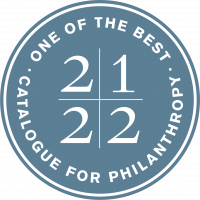Call for Participants: CASD/GU Autism Spectrum Disorder Study
CASD is currently recruiting for a new online study in collaboration with Georgetown University. Eligible participants are adolescents 14-18 years old with or without autism spectrum disorder. The study takes place entirely over Zoom and involves completing a few tasks and answering some questionnaires with a member of the research team. Parents will also be asked to report on their child’s behavior. Parents and children will be compensated up to $80.
If you or someone you know is interested in learning more about our study please contact Rebecca Handsman at rhandsman@childrensnational.
Center for Autism Spectrum Disorders’ Internet Safety for Autistic Youth
Young people with ASD are at higher risk for compulsive internet use, exposure to inappropriate materials online, victimization by online predators, cyberbullying, and sleep disturbances. Young people with ASD use the internet more than neurotypical young people, and their parents report noticing more negative impacts of internet use.
It is important to mention that there are also several benefits of internet use, including opportunities for social interactions around shared interests, vast resources for learning about topics of interest, use of visuals, and reduced discomfort and anxiety when communicating with peers compared to face-to-face interactions.
Caregivers can consider implementing the following strategies to reduce risk associated with internet use:
- Set clear limits on internet use, including the amount of time, times of day internet can be used, and specific websites (websites to support these strategies include Bark, Qustodio, Norton).
- Manage privacy settings and block inappropriate material using internet filters and special browsers (e.g., Google Family Safety Center).
- Encourage technology or computer use in the same room as an adult or a common space in the home.
- Discuss the differences between facts and opinions online, such as when encountering comments and posts on social media that may be upsetting.
- “Friend” your child on social media sites so that you can monitor their activity.
- Have frequent discussions about internet safety including:
- Dangers and consequences of visiting inappropriate websites.
- Information that should never be provided to strangers online (e.g., date of birth, address, personal images).
- Make it clear that your child should not meet online contacts in person.
- How to identify and respond to cyberbullying.
Additional websites and books that may be helpful for families to support safe internet use include
- Online Safety for Children and Teens on the Autism Spectrum: A Parent’s and Carer’s Guide by Nicola Lonie. This book includes strategies parents can use to address risks of internet use for young people with ASD, including strategies specific to compulsive internet use, cyberbullying, social media challenges, mobile and gaming technology, and computer hacking.
- Pathfinders for Autism resources for Internet Safety, Cyberbullying, and Cyber Crimes, is available at: https://pathfindersforautism.
org/resources/safety/internet- safety/


Leave a Reply